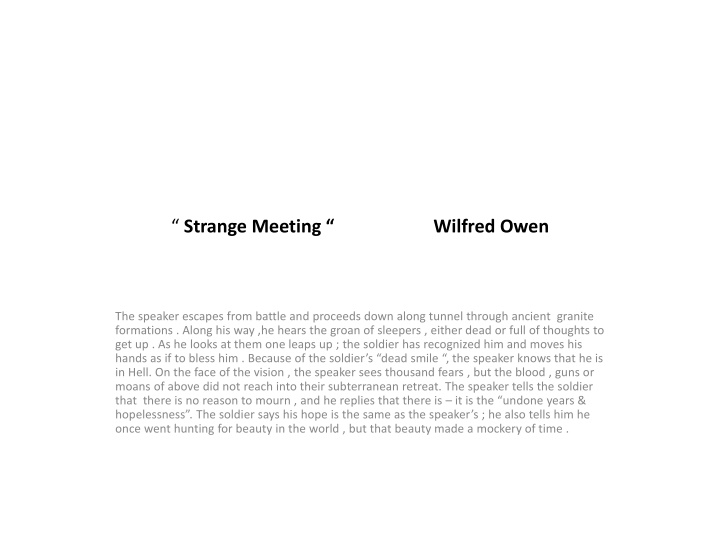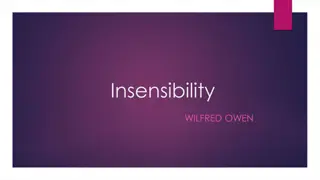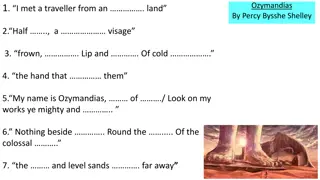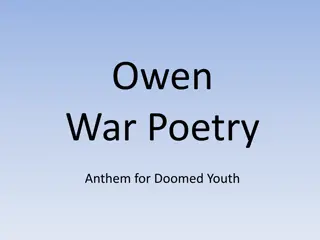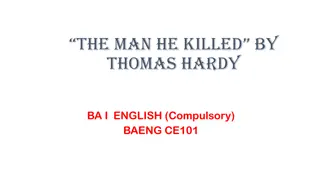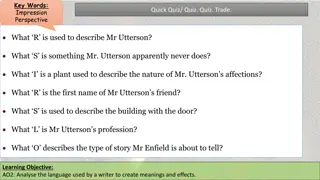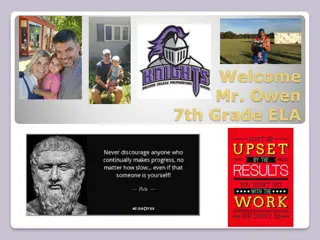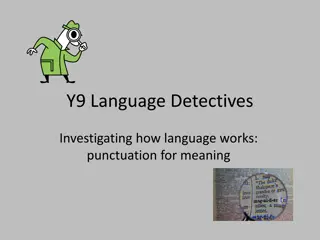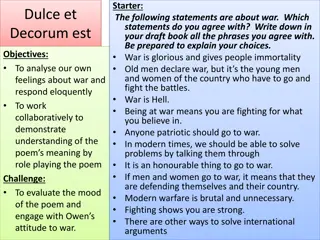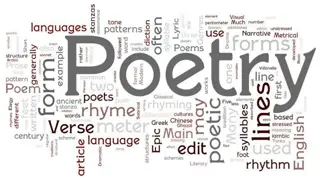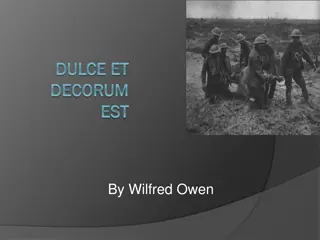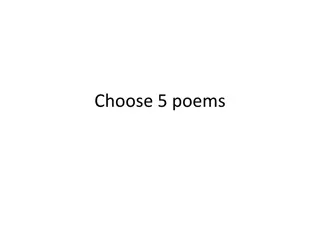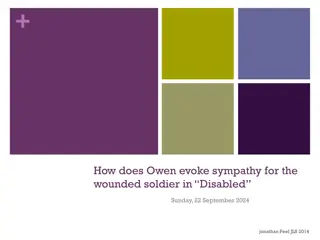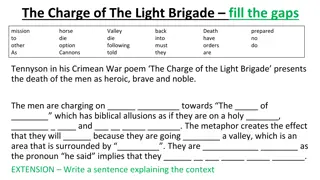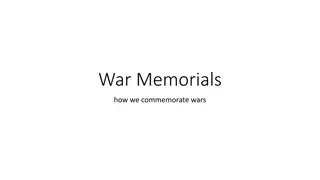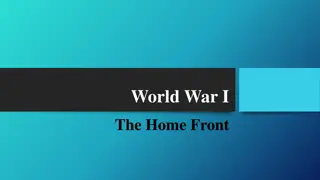Exploring the Themes of War and Reflection in Wilfred Owen's 'Strange Meeting'
The poem "Strange Meeting" by Wilfred Owen delves into the futility and horrors of war through a profound encounter between two soldiers in Hell. As the speaker grapples with the sorrow and truths revealed in this subterranean meeting, themes of loss, regret, and the devastating impact of war on humanity are explored. The poem prompts reflection on the nature of conflict, the heavy burdens carried by soldiers, and the haunting legacy of violence. Through intricate symbolism and intense imagery, Owen crafts a powerful narrative that resonates with timeless themes of war and humanity.
Download Presentation

Please find below an Image/Link to download the presentation.
The content on the website is provided AS IS for your information and personal use only. It may not be sold, licensed, or shared on other websites without obtaining consent from the author.If you encounter any issues during the download, it is possible that the publisher has removed the file from their server.
You are allowed to download the files provided on this website for personal or commercial use, subject to the condition that they are used lawfully. All files are the property of their respective owners.
The content on the website is provided AS IS for your information and personal use only. It may not be sold, licensed, or shared on other websites without obtaining consent from the author.
E N D
Presentation Transcript
Strange Meeting Wilfred Owen The speaker escapes from battle and proceeds down along tunnel through ancient granite formations . Along his way ,he hears the groan of sleepers , either dead or full of thoughts to get up . As he looks at them one leaps up ; the soldier has recognized him and moves his hands as if to bless him . Because of the soldier s dead smile , the speaker knows that he is in Hell. On the face of the vision , the speaker sees thousand fears , but the blood , guns or moans of above did not reach into their subterranean retreat. The speaker tells the soldier that there is no reason to mourn , and he replies that there is it is the undone years & hopelessness . The soldier says his hope is the same as the speaker s ; he also tells him he once went hunting for beauty in the world , but that beauty made a mockery of time .
Summary He knows the truth of what he did , which is the pity of war ,the pity war distilled , but now he can never share it . The soldier \vision continues ,saying men will go on with what is left to them , or they will die as well . They will not break their ranks , even though nations trek from progress . He used to have courage & wisdom . He would wash the blood from the chariot wheels . He wanted to pour his spirit out , but not in war . Finally , he says to the speaker that I am the enemy you killed , my friend and that he knew him in the dark . It was Yesterday that the speaker jabbed & killed him , and now it is time to sleep .
Analysis The poem s description of a soldier s descent into Hell where he meets an enemy soldier he killed leads itself to a critique of war .The dead man talks about the horror of war & the inability for anyone but those involved to grasp the essential truth of the experience . However, many critics believe that the man in hell is the soldier s Other , his double. The dead man is the other , but he is more than a reflection of the speaker, he is a soldier whose death renders his status as an enemy void. Another critic reads the poem as a dream vision ,with the soldier descending into his mind and encountering his poetic self , the poem becoming a mythological and psychological journey. The other represents the narrator s unconscious, his primal self from which he has been alienated by war. .
Analysis The poem illustrates the futility of war . Owen himself fought in World War 1 and he quickly became horrified . The speaker and the sleeper are both soldier- poets. Some say that the sleeper is the speaker s \ Owen s alter-ego. The speaker (perhaps still not aware that he is dead) is glad to be away from battle .But his alter-ego mourns the loss of his life because had he lived , he would have used the opportunity to write more , to educate people about the futility of war .Since he and people like him , have died , he fears that the world will go down a path of destruction initiated by this war to end all wars . In the last section , the alter ego (sleeper)reveals that he is the one the speaker had killed . The tragic \ironic implication is that the alter-ego knew him as a friendly only in death . It took death for him to realize the futility of war .The alter-ego mourns the loss of his ability to share this truth in life as he must accept his fate sleep .
Analysis The poem is renowned for its technical innovation particularly the pararhyme , e.g: escaped, scooped, groaned , grained , hair ,hour
